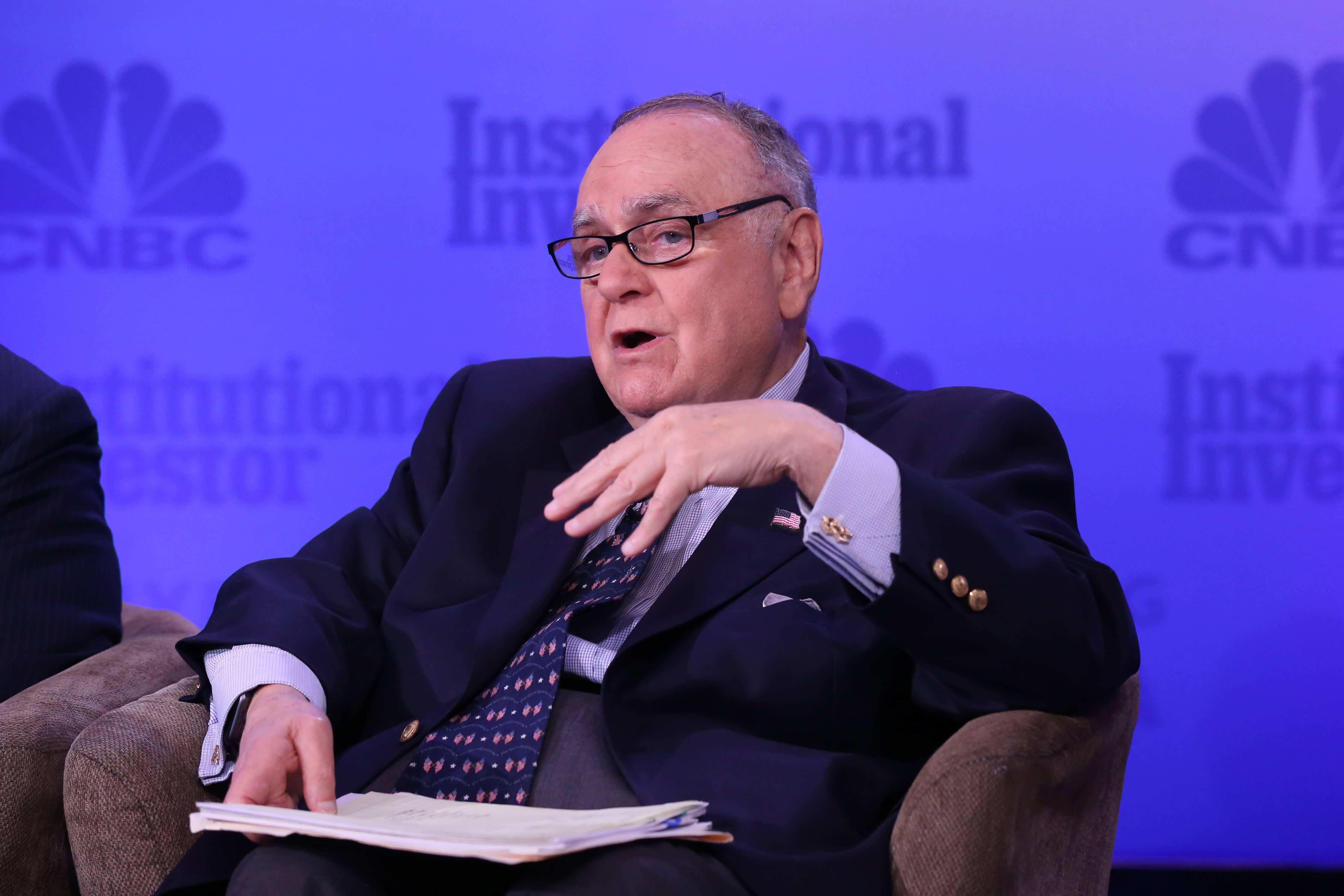Many investors have been whipsawed by the market’s sharp downturn, but billionaire investor Leon Cooperman thinks reinstating an old trading rule could help protect them: The uptick rule.
The uptick rule was a rule from the Securities and Exchange Commission that prevented short sellers from putting more pressure on a security that was already languishing. The rule was implemented in 1938 but was eliminated in 2007 as electronic trading began to take over Wall Street.
Cooperman said Sunday night that, by bringing back the old rule, market moves such as the ones seen last week, would be less volatile. He added that bringing back the uptick rule would be even more effective at stabilizing the market than lower rates from the Federal Reserve at this point.
“If you ask me: cutting the rates or reinstating the uptick rule? I say reinstate the uptick rule,” Cooperman said during a CNBC special Sunday evening. “Rates are already low enough.”
Leon Cooperman at Delivering Alpha, September 19, 2019.
Adam Jeffery | CNBC
Essentially, the rule only allowed investors to short a stock or a security on an uptick, which is defined by a price increase relative to its previous tick. For example, if a stock trades at $1 in one tick then rises to $1.02 in the following tick, then an investor can short it. However, if the stock trades at $1 but falls to 99 cents on the next tick, a trader cannot short it at that moment.
Cooperman feels so passionate about this issue he sent a letter to the Securities Exchange Commission, he said.
Eliminating the rule “aided and abetted a lot of these quantitative trading systems, which basically exaggerate moves up and down,” he said. “In the last hour on Friday, the S&P 500 moved like 100 points. That’s not related to economics.”
The S&P 500 closed well off its session lows on Friday after a jump with less than hour left in the session. Still, the broad average was down more than 11% for the week and entered correction territory as global markets were battered by concerns over the coronavirus.
To be sure, some traders believe that rules such as the uptick are archaic and that by undoing them and letting electronic trading flourish, the SEC has allowed Wall Street to lower costs for investors and provide more liquidity in trading, even during a crisis.
Subscribe to CNBC PRO for exclusive insights and analysis, and live business day programming from around the world.
